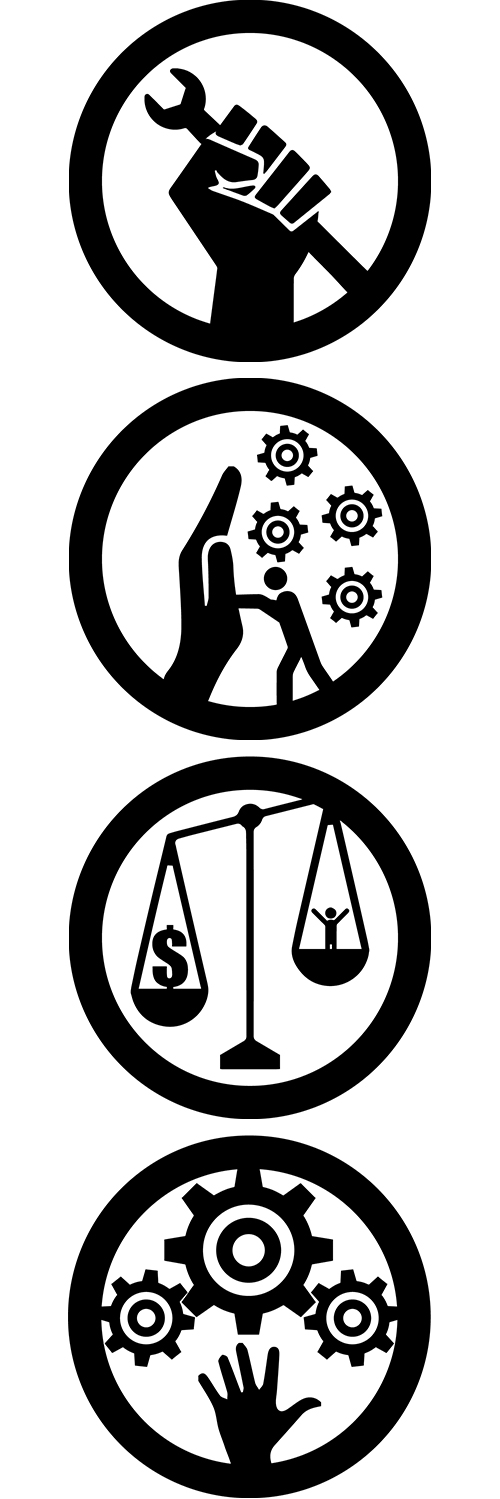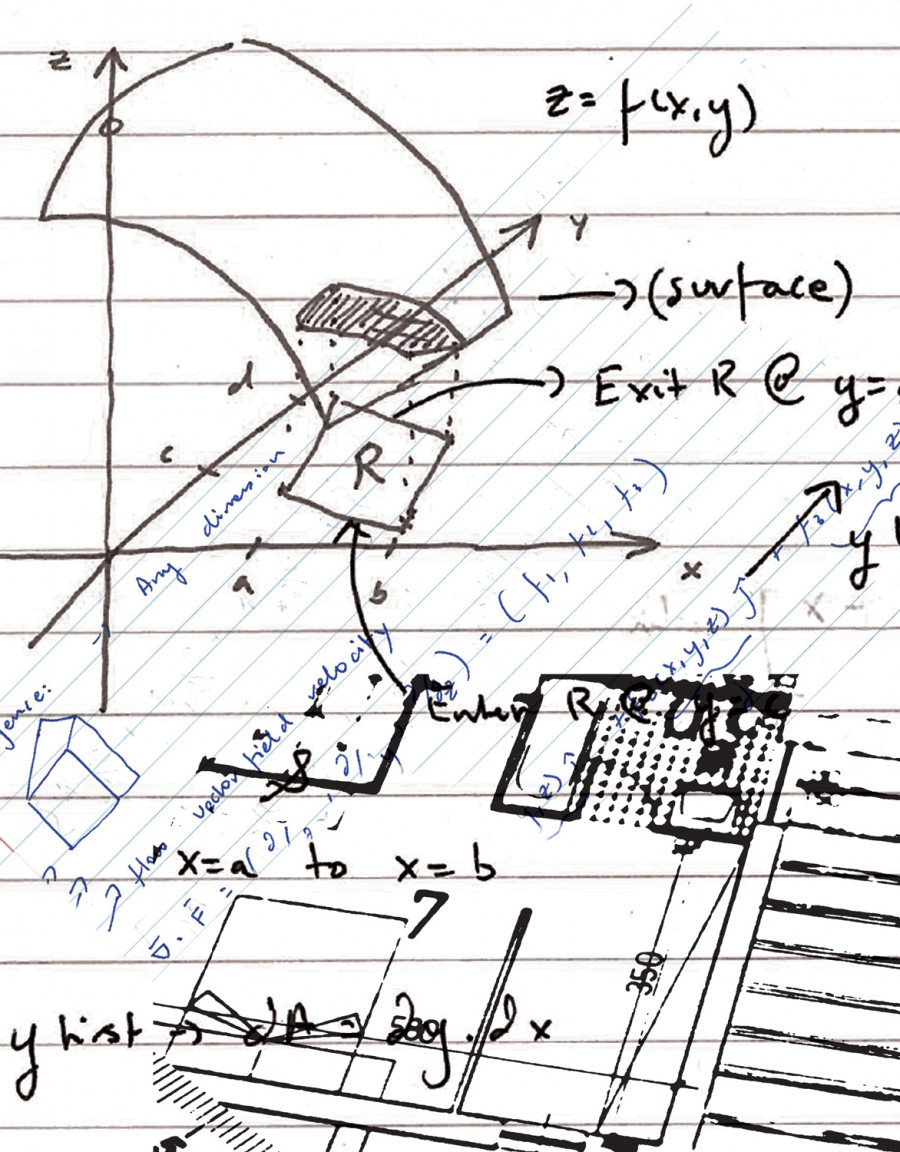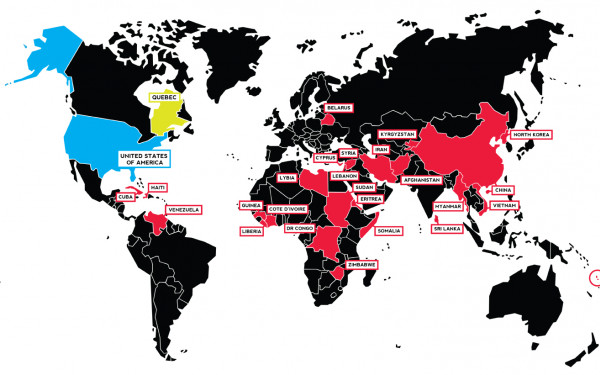Concordia Engineering Students Utilize an Ongoing Network of Information to Succeed
Problems Within the Program Lead Students to Share Past Assignments, Quizzes and Exams in Order to Succeed
For some students, attending classes, studying hard and seeking help from their professor may guarantee their best chance at a high GPA.
The names of those involved in the article have been removed and replaced with pseudonyms as a courtesy due to harassment they later faced online following publication. Two students were from the Engineering and Computer Science Association and one was in Women in Engineering at Concordia
Four students in the Gina Cody School of Engineering and Computer Science who spoke on record, and one who spoke off-record, feel that this doesn’t seem to be the status quo, with one student finding a combination of relying on teachers and outside sources to both be beneficial for her. For most to obtain the best grade possible and inch closer towards graduation in a degree that requires many hours studying, information sharing or outside tutors can be advantageous. Some buy or find access to past exams, assignments or quizzes from former students—as some professors often repeat their material. Off campus tutoring resources are also utilized, when students find the professor cannot help them.
A student in industrial engineering, Miguel said he had an “all star team of bad teachers” in his first semester and wasn’t ready for the workload required in engineering. Miguel said when he first began his degree, he was not aware that learning only through your teachers and studying from the course notes is not enough to do well.
“So come midterms, first semester of fall 2015, I basically flunked all my midterms and ended up dropping out of school,” Miguel said.
He eventually came back the next semester, switching disciplines from mechanical to industrial engineering, with the understanding that outside resources would help him succeed.
“It’s a lot of group studying and a lot of crash courses, extracurricular tutoring,” Miguel said. “After understanding the name of the game and how it’s played, I did super well coming back.”

Miguel said he went from failing his classes to having a 3.9 GPA the next semester. “All it was [is] understanding that your teachers aren’t going to be the ones that are gonna help you pass,” he said.
Miguel said for many students, access to former quizzes, tests, assignments and exams are what helps them obtain a passing grade. Miguel said a lot of students work together by sharing drives of information of former assignments, tests or exams, to memorize and study the answers.
“If you see someone in fourth year, they’re trying to plug you as much as possible with past exams, past midterms, and that’s sort of a culture within engineering where we hold on to [information],” said Miguel.
Donte, a student in aerospace engineering, said there are some teachers who repeat all their finals and quizzes without changes to the material. “Basically what ends up happening is you’re not learning like you should, and you’re relying on past students and they’re really carrying you to success,” said Donte. “The result of all this pressure to do well ends up creating a bunch of engineers who seem like they’re super competent, but in reality aren’t,” said Miguel.
Stephanie, a student in industrial engineering, said she does not believe the material is the same from year to year, but reviewing past content is helpful to study. “If we do have access to past quizzes and material from other students we do utilize them, but most people in engineering do it’s very common to have a lot of material from previous semesters,” Stephanie said.
Besides shared information, many attend outside tutoring instead of class, because they find it to be a more beneficial use of their time, said Henry, student in industrial engineering.
“I don’t attend any of my classes anymore, it’s so demanding to attend all of the lectures because normally most professors are really bad,” said Henry.
Derek, a student in mechanical engineering, said he has to skip many of his classes so that he can balance studying, homework, his role in Concordia politics, as well as 18 hours for his part-time job per week.
Derek said the Engineering Accreditation Board writes the rules for what constitutes a proper engineering program in Canada, requiring programs to provide a certain number of hours for classes, lectures, and tutorials per week, so this is why engineering students at Concordia have such heavily packed schedules.
Derek said he pays more than $200 every semester in addition to his school fees to use an outside tutoring service. He knows he will do well if he attends the tutor instead of class, he said. “We do skip a lot of classes, but we do find our way to learn the material and compensate for it.”
However, Stephanie said she doesn’t often skip class. But she said she will skip and teach herself when she doesn’t agree with the teaching style of a teaching assistant or professor. “Most of the classes I attend and the few that I don’t [are] very limited,” said Stephanie.
Regarding that some find sharing information a need to be successful in the program, University spokesperson Mary-Jo Barr responded on behalf of the Gina Cody School of Engineering and Computer Science. Barr said that course evaluations, the performance of professors and the anecdotal feedback received from students is closely monitored. “In recent years, we have substantially increased the teaching assistantships and offered additional tutorials for challenging courses,” said Barr. “Faculty members are also available during their office hours [and] students are encouraged to use these resources.”
Research Over Teaching
“It’s like that for all undergraduates, teachers don’t really care about [us],” said Donte.
He said he noticed that professors are sometimes cold and rude to undergraduates, “whereas when you’re a master’s student they’ll sit you down, they’ll talk to you nicely.” Derek said the department and the university obtain a lot of their status from the research conducted within the institution.
“They do amazing research at the PhD and master’s level and no doubt that all the profs they have—all the PhDs—they’re geniuses, they’re amazing in their field,” said Derek. “But part of [having] a PhD at a university is that you do need to teach courses.”
He said as a result, many of them who have excellent research skills are greatly lacking in teaching skills. “I totally get it on [the professor’s] end, but at the end of the day we’re the ones who pay the price.”
Henry said he’s had a professor showed up two hours late for the final exam.
“It was supposed to start at 7 p.m., he showed up at 9 p.m., so regardless if anybody had other arrangements after the exam, were planning to catch a flight or anything, he showed up at 9 p.m. with the exams,” said Henry. “We sat in a classroom with nothing to do, no cell phones, no nothing for 2 hours waiting for him to show up.”
“You’re not learning like you should, and you’re relying on past students and they’re really carrying you to success.”
— Donte
The name of the professor was not given, however, both Henry and Miguel were in the exam room and corroborated this story. Derek said he was in the other exam room for the same course taught by another professor. He said his exam started on time, but he ended up waiting for his friends in the other exam room to finish, as a result of their professor being late.
Henry said despite cases like this, he still has had some very good professors at Concordia. He said the ratio of excellent professors 20/80. “80 per cent don’t care, 20 per cent are amazing at their job,” Henry said.
Derek believes there are some great professors who really care, however, he said it’s reoccuring that there are professors who just don’t care. “At the end of the day we do get screwed because about half of our professors care and half of them don’t.”
There needs to be a culture shift from professors being based on research, to students being a main point of their priority, according to Derek.
Stephanie said it’s a change from high school or CEGEP, but as long as the teachers post the slides and the solutions to problems, they make it easier for the students.
Barr said professors must make themselves available for students outside of class time during their office hours, which is reinforced by the department chairs at the beginning of each term.
Barr said course and professor evaluations are monitored by the faculty. “The vast majority of our faculty members are very dedicated to teaching our future engineers as corroborated by these evaluations,” said Barr. “Faculty members who do not perform well on teaching evaluations are encouraged to attend teaching workshops offered by Concordia’s Centre for Teaching and Learning.”
Regarding the late exams, Barr said professors are expected to submit their exams to the Examination Office beforehand to ensure the exam will start on time. Henry said he is not sure if the professor submitted the exam, however, he said the exam was not initiated until the professor finally arrived.
Scheduling
Late grading and long waitlists for classes can cost some students a lot of time and money by delaying their graduation. Henry said a lot of mandatory classes are given one semester per year, so if you fail a class it can result in needing to take it next year, delaying graduation by a year. Donte said this may start a chain of delays, as one it may be a prerequisite for another class, and that class a prerequisite for another class, and so forth.
Donte said scheduling for classes and labs are often inconvenient. He said some of his friend’s classes from Monday to Thursday would start early in the morning until late in the night, with classes spread out and long breaks or laboratories—where students get to put their learning and theoretical knowledge to use by performing scientific experiments or by building real world models—are placed in between.
“I know [for] a lot of my friends it took a toll on them; there’s a lot of people who drop out of engineering first semester because they realize this is too much,” said Donte.
Stephanie finds sometimes she can have these long schedules with large breaks or laboratories in between, but she sympathizes with the department, that there are a large number of students to accommodate within different classes.
Scheduling conflicts sometimes may cause students more stress during finals, as Donte found. “[Once] I had three finals in the span of 24 hours,” he said. Donte said he had an exam at 7 p.m. to 10 p.m., then the next day he had an exam at 9 a.m. and a final exam at 2 p.m. that same day. ”Honestly I thought I was going to be ok, but then I got to the 2 [p.m.] to 5 [p.m.] one,” said Donte. “Thirty minutes before the [exam] I had to drop the class because it was too much; my brain was fried and I couldn’t do it.” Donte said he feels the exams should be planned better.
Wait lists have generated issues for some students, as Donte recounts being on waitlists to get into classes required for graduation, which were at time longer than 10 people. This is not often the case, as Donte said this has happened to him two times. He often gets into the class when others drop the course.
Students in the co-op engineering program have some priority over students in regular classes, so they often do not face being waitlisted for mandatory classes. Barr said co-op students are not automatically enrolled, but they have access to registration before non co-op students. “Therefore, it could be more likely that non-co-op students are waitlisted because the class is full by the time registration opens for them,” said Barr.

Concordia President Alan Shepard said there’s a strain in the system around lower level math and physics courses, and the university is working on being able to offer the right number of classes.
“What’s happening in engineering is that our engineering program is so successful and its reputation is climbing so amazingly that the ratios by which we admit students and assume they will come are no longer accurate,” Shepard said. He said historically, if the university admitted ten students, four of them would come, however, now an average of six accept their offer.
“We’re trying to adjust our offerings to accommodate the need,” said Shepard. “We’re not trying to [prevent] people from graduating.”
Barr said traditionally core courses such as math and science, have long wait times, and along with new students, there are also those that repeat these courses to obtain a better grade.
“It is, therefore, difficult to predict the number of students registering in such courses, but we try to be as flexible as possible to ensure that all students for whom the courses are required are able to enroll,” she said. “Where needed, we increase the cap size for sections in high demand and also offer additional sections.”
The department started a pilot project this year, reserving a section of math courses for engineering and computer science students, according to Barr. Based on the results, this idea could be expanded to reserve mandatory courses offered by Arts and Science.
“We are also looking at the possibility of having a predefined timetable for all newly admitted students,” Barr said. “We hope that this initiative will ensure that all newly admitted students have a reserved spot in core courses in their first year and do not fall out of sequence due to wait lists.”
Grade Curving
In engineering, a grade curving system is used. Grades are raised or lowered on a bell curve, to deter the average grade from being a fail, and to also prevent everyone from having too high of a grade. Derek said a lot of time the grade curving is luck.
“Depending on where your grade is on the curve, you can shift from one per cent to like a full 40 per cent down or up,” said Henry.
Donte said there’s an expression called ‘riding the curve’—a guessing game to see if your grade will be lowered or raised. He said if there’s an exam where two or three students get 40 per cent and most of the class receives 50 per cent, the students who received 60 per cent will receive a final grade of A+ and the ones with 40 per cent will not be curved up and fail the class. In a similar scenario, students who receive 60 per cent in class, where the average was a 75 or 80 per cent can end up failing the class due to grade curving. “I find it’s not really fair,” said Donte.
Derek said it’s just the way the bell curve works, you either curve high or get curved very low. “Riding the curve is sort of praying that when you get your grade, you’re surprised, but you’re surprised in a good way,” said Derek.
Shepard said when grade curving is used, it’s aimed to be beneficial for students. “You’re not passing people who should have failed, that’s a different thing; you’re trying to be fair to the students and adjust the difficulty of the exam to the kind of appropriate standards for the course or the discipline,” said Shepard.
Mental Health and Culture of Using
Miguel said his mental health has been negatively impacted by his workload and the pressure of school. As a physical trainer outside of Concordia, he says he no longer has enough time to workout.
“I experience a lot of academic stress and anxiety related to academics, which negatively affects me, my performance in school and the gym,” said Miguel. In terms of how he deals with his stress, Miguel said he tends to drink and smoke as a way to ease his stress. “There’s a huge culture of drinking within engineering that’s not something you can get away from,” he said. “Within engineering, [drinking] is almost mandatory, and the people that don’t drink are obviously smoking and doing other things.”
Derek said there’s a lot of students in engineering who use drugs to study.
“You’d be surprised at the people who use Adderall as a study aid where they weren’t prescribed so they got it illegally,” he said. “These are people who [are] straight A students […] straight arrow types of people who don’t smoke and drink.”
With skipping class, crash courses, tutors and the sharing of information among students, Derek said engineering students need to do everything they can in order to get a job after graduation.
“You need to set yourself apart and in order to do that you need to either work part time, be involved in the school, so being involved in associations or playing a sport,” said Derek. “These are things that take […] time, so if you want to do well in your career search and have the best opportunities for your jobs you need to sacrifice your time.”
Barr said that for specific complaints towards the program, students should reach out to their department chair to have their individual situation reviewed at a higher level.




_820_547_90_600_375_90_s_c1.jpg)


